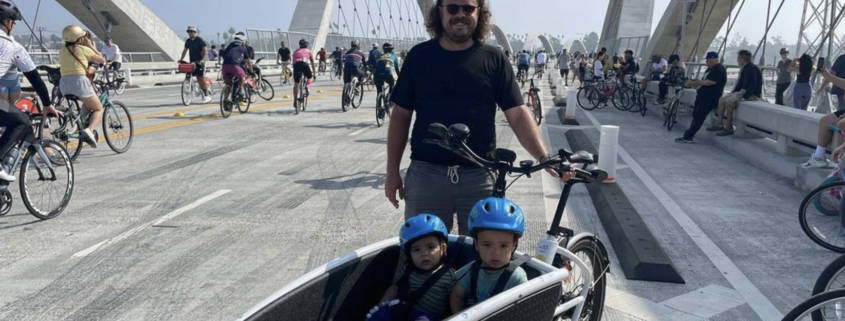CalBike Statement on E-Bike Licensing Bill, AB 2234
For Immediate Release: 2/15/24
Contact: Jared Sanchez, CalBike, (714) 262-0921, Jared@CalBike.org
CalBike Opposes AB 2234 (Boerner) E-Bike Licensing Bill
SACRAMENTO – CalBike opposes AB 2234 (Boerner) as currently introduced. The bill would create an unnecessary new bureaucracy and mostly harm youth of color in California while not taking the steps necessary to make our streets safer for all users.
AB 2234 creates a requirement for all people riding an e-bike to carry a driver’s license or a state-issued ID card along with a waiver showing they had completed the California Highway Patrol (CHP) online e-bike course. This will criminalize people for not having or not carrying identification, a requirement likely to be disproportionately enforced against Black and Latino Californians.
Further, it’s not always possible to distinguish between an e-bike and a standard bicycle, so AB 2234 will lead to more unnecessary police stops and more harassment of people on bikes, especially young people of color.
“While e-bike safety education is an important issue worthy of statewide investment, this bill will create an unnecessary new bureaucracy and enforcement problem that will mostly impact Black and Brown youth in California,” says CalBike Policy Director Jared Sanchez. “California should implement policies to help more people choose bikes for their everyday transportation, but AB 2234 creates obstacles that will discourage people from riding a bike.”
Setting a minimum age for operating an e-bike will lead to further harassment, particularly of vulnerable youth, leaving it up to police officers to estimate their age, pull them over, and demand identification. Police encounters of this kind are often traumatic for youth and could have lasting effects.
In addition, the bill requires CHP to create a certificate for taking its online e-bike safety course, which is far from comprehensive. The waiver requirement in the bill will do little to educate bike riders but places an additional obstacle for people who want to use green transportation, or use them out of necessity.
California has a street safety crisis
More bike riders and pedestrians are being injured and killed on California’s roads, and this is a crisis our elected leaders should address. CalBike supports additional resources for bicycle education, particularly programs for primary school students. But mandating licenses for e-bikes won’t serve the goal of safety.
AB 2234 assumes that e-bike riders are the perpetrators rather than the victims of traffic violence. There are very few instances of people on any type of bike injuring or killing a pedestrian, but thousands of instances each year of people driving cars colliding with people riding bikes or walking. Better bike education couldn’t prevent most of these crashes. The real solution is more and safer bikeways, better road and intersection design, and addressing car bloat that reduces visibility and increases the lethality of motor vehicles.
Assemblymember Boerner was a driving force behind the creation of California’s statewide E-Bike Incentive Project, which will make e-bikes affordable to more Californians, especially people who are low-income and live in underserved areas. We’re disappointed she has introduced legislation that could reverse that important progress.
The bicycle is an efficient and essential tool to fight climate change, and e-bikes make bicycling accessible to a wider range of people. E-bike licensing requirements are unlikely to measurably reduce the prevalence of crashes, but they will reduce ridership just as California needs to employ every strategy to mitigate the climate crisis.




